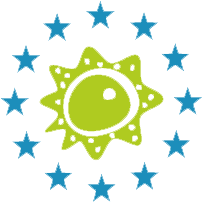RCCE-IM: What health emergency teams must know
Jointly organised by the European Centre for Disease Prevention and Control (ECDC) and the WHO Regional Office for Europe, this interactive side-event will explore how different professionals in a health emergency response team can best work together to win the trust and support of the affected community. The panel will feature a senior public health official, an epidemiologist and a risk communicator. Since this is a reverse session, most of the time will be dedicated to questions and comments from both the live audience in Stockholm and participants joining online.
Date and time
22 November, 15.45-16.45
Moderator
Cristiana Salvi
Cristiana leads the Risk Communication, Community Engagement and Infodemic Management Unit of the WHO Regional Office for Europe’s Health Emergencies Programme and is the focal point for Community Protection towards the new regional strategy and action plan Preparedness 2.0. She has been deployed in health emergency settings for 20 years supporting countries in Europe, Asia and Africa, and has been heading the RCCE-IM response to multiple emergencies in the European Region in the last years. This experience has been translated in launching RCCE-IM as a technical area in the European Region and building countries’ capacities and capabilities through innovative platforms.
Cristiana has initiated civil society organization engagement and infodemic management in the Region and has advanced evidence generation and experience sharing on RCCE-IM. In 2023 she established the first WHO Technical Advisory Group on RCCE-IM, positioning the area as an evidence-based public health intervention at the core of the emergency cycle.
Speakers
Ana Kasradze
Ana Kasradze serves as a Senior Public Health Specialist for the Centers for Disease Control and Prevention’s (CDC) Eastern Europe and Central Asia (EECA) Regional Office. She previously served as the Head of the Public Health Emergency Preparedness and Response Division for the Georgian National Center for Disease Control and Public Health (NCDC).
In this role Ms. Kasradze coordinated Risk Assessments, preparedness, and response capacity evaluations, managed the Public Health Emergency Operations Center (EOC), and served as the International Health Regulations (IHR) and Global Health Security Agenda (GHSA) focal point for NCDC. Under her leadership, Georgia achieved full compliance with the IHR Core Capacities. Following the launch of the GHSA, Georgia emerged as the leading country for the Real-time Biosurveillance Action Package, and Ms. Kasradze played a crucial role in the implementation process. She has also been instrumental in the development of Georgia’s Public Health Emergency Response Plan and organizing trainings and simulation exercises.
In 2009, Ms. Kasradze graduated from Tbilisi State Medical University with a focus on Public Health and later earned a Master's in Public Health from the International School of Public Health in 2013. She has also participated in several non-degree programs, including the Emerging and Infectious Disease Research Program at the University of Florida, College of Public Health and Health Professions in 2012, and Infectious Disease Epidemiology Studies at the State University of New York at Albany in 2013.
John Kinsman
John Kinsman has conducted social and behaviour change research since 1996, including on the social determinants of health, health system strengthening, public health emergency preparedness, and the prevention and control of diseases such as HIV/AIDS, Ebola, Zika and poliomyelitis. He joined ECDC in 2019, working initially on promoting vaccination acceptance and the prevention of antibiotic resistance in the EU, but with a focus on COVID-19 during the pandemic. COVID-19-related projects have included addressing pandemic fatigue, supporting socially vulnerable populations, promoting vaccination, and countering online vaccination misinformation. John gained his PhD in medical anthropology at the University of Amsterdam in 2008, and was Associate Professor in Global Health at Umeå University in Sweden from 2013 until he joined ECDC.
Christina Rolfheim-Bye
In her role as Communications Director Christina leads NIPH’s communications department and is a member of the senior management team. Her department is responsible for managing the institute’s website (fhi.no), overseeing FHI’s intranet, handling the media watch service, and managing the institute’s social media profiles. Christina and her team assist researchers in disseminating their projects and work extensively on risk communication, crisis communication, and providing communication advice to leaders and employees.
Before joining the NIPH, Christina held various roles in the field of communications and public relations. She has a strong background in strategic communication, and her experience includes managing communication strategies for public health campaigns, developing crisis communication plans, and leading media relations efforts.
Christina previously worked as a communications director at Oslo University Hospital, Aker University Hospital, an organization for student welfare (SiO) and as a communication advisor at Geelmuyden.Kiese, a Nordic PR agency.
Christina holds a degree in social anthropology from the University of Oslo, combined with governmental science and public law.
